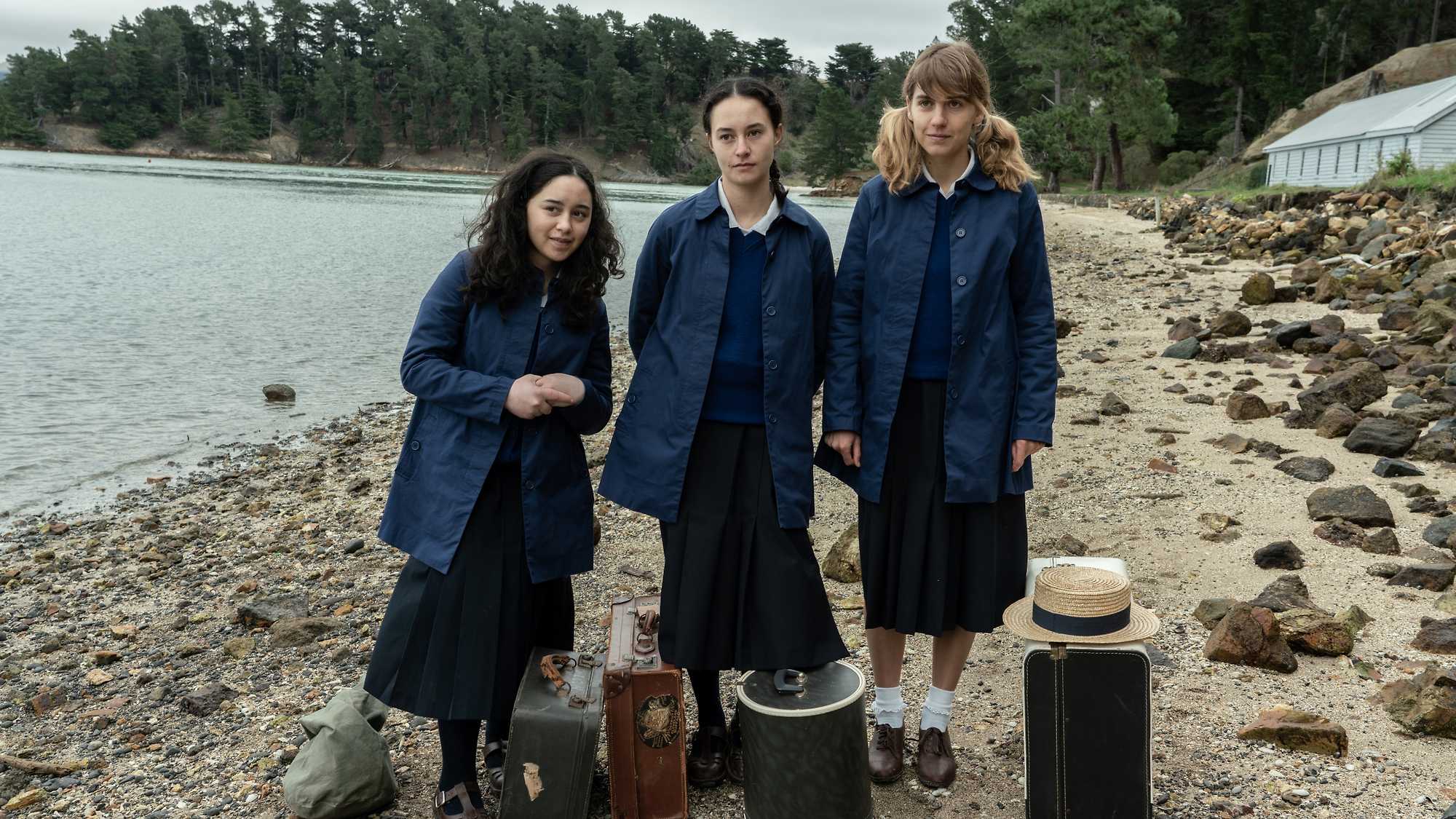Winning the Special Jury Prize at SXSW this year, Josephine Stewart-Te Whiu’s electric debut launches our festival with a fiery trio of delinquent schoolgirls railing against the colonial system in 1950s New Zealand.

It’s a hopeful — sometimes borderline exuberant — rallying cry for girls to stick together across the various divides that people use to disempower them.
Screened as part of 2024
We Were Dangerous 2024
Ko te kawau moeroa,
tōia te waitī, tōia te waitā.
Ko te ika pukapuka, he kōhine,
ko te ngohi, he kotiro Māori.
He māreikura, tuhaina ki uta,
He wāhine, whiua ki te toka.
E te urinō te whare o Ngāpuhi, Josephine,
te whakapuaki i te mahi patu whare tāngata,
tū tonu! Tū tonu!
New Zealand in the 1950s was not an especially friendly place for outcasts, especially for those who also happened to be young, queer, or Māori women. When teenage Nellie (Erana James, Hot Mother, NZIFF 2021) and Daisy (Manaia Hall, in her feature film debut) are rounded up on the city streets, they are sent to the School for Incorrigible and Delinquent Girls under the care of a devout matron (Rima Te Wiata, Housebound, NZIFF 2014). There, they meet Lou (Nathalie Morris), a wealthy Pākehā girl whose parents sent her to the school to curtail her wayward behaviour. Reminiscent of conversion therapy camps or Magdalene laundries for “fallen” women, the institution is designed to reform these juvenile rebels into obedient young ladies primed for marriage.
After a failed escape attempt, the girls and their cohort of renegades are shipped off to the rugged, isolated former leper colony Ōtamahua (Quail Island). We follow the rebellious trio through etiquette classes and lessons in the virtues of British colonisation, but doom sets in when they catch a glimpse of the dead-of-night discipline being performed against those who act up. With nothing left to lose, the girls begin plotting their escape.
This vivid debut from Josephine Stewart-Te Whiu (Ngāpuhi, Te Rarawa) is a riotous middle finger to colonial tyranny, a fierce feminist anthem with a wicked sense of humour, and a potent portrait of friendship and solidarity. Written by New Yorker cartoonist Maddie Dai and Stewart-Te Whiu, and executive-produced by Taika Waititi, We Were Dangerous is a vibrant ode to adolescent anarchy and chosen family from a cast and crew of thrilling new Aotearoa filmmaking talent.
The film premiered to packed screenings at SXSW 2024 where it was awarded the Special Jury Award for Filmmaking in the Narrative Feature Competition. In awarding the prize the Jury stated, “We Were Dangerous, a spirited and affecting tale of female rebellion at a 1950s New Zealand reform institution for so-called delinquent girls, heralds the arrival of an exciting new filmmaking talent in Josephine Stewart-Te Whiu. Her feature film directorial debut confronts a sobering and all-too-relevant history with a sly sense of absurdity and the camaraderie of its three young leads, played by Erana James, Nathalie Morris and Manaia Hall.” This award adds to Stewart-Te Whiu’s impressive resume including the Māori Screen Excellence Award from the New Zealand Film Commission alongside her fellow Waru filmmakers in 2018, and New Zealand’s Best 2021 Best Film Award (jointly awarded) and Auckland Live Spirit of The Civic Award for When We Were Kids at NZIFF 2021. — Amanda Jane Robinson
“An encouragement to fight for what’s right and a promise that you’ll never be alone when you do it. Stewart-Te Whiu is a new, unique, and vital voice in cinema, and it’s exciting to know that she’s just getting started.” — Taylor Gates, Collider
“At its heart We Were Dangerous is about hope, girlhood, and a celebration of female friendships. It's a film about our power and having autonomy over our own bodies. Layered underneath this, we also examine the impacts of colonisation on young women and our indigenous Aotearoa New Zealand communities.” — Director Josephine Stewart-Te Whiu